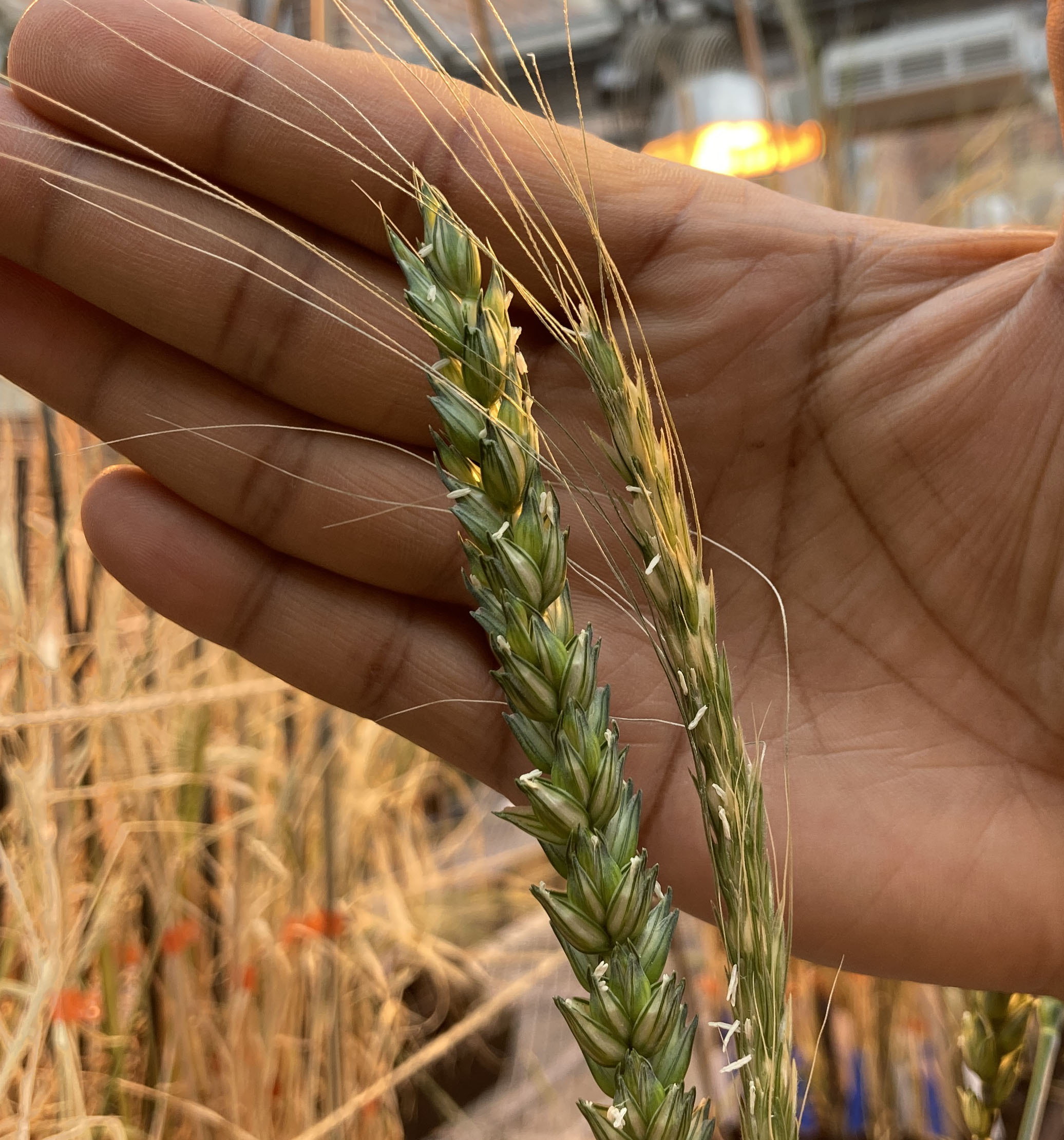The researchers aim to identify pathogen-resistant genes in wild wheat and breed them into domestic varieties in the U.S. and other major wheat producing nations.
Image Credit: Kimbra Cutlip
Wheat is among the world’s most important staple crops providing 20% of the calories consumed by the global population. Considered a foundation of human civilization, the wheat we eat today has been cultivated over thousands of years to produce desirable traits such as large grains and high yields. But modern wheat lacks the genetic diversity that is essential for adaptation to emerging threats such as a changing environment, pests and diseases. As the global population continues to expand, modern wheat producers will need more resilient forms of wheat to continue feeding the world.
That’s why Vijay Tiwari has assembled an international team of researchers to identify genes for pathogen- and pest-resistance in an ancient species of wild wheat. Their goal is to breed those tolerance traits into domestic wheat varieties. The assistant professor in the department of Plant Science & Landscape Architecture at the University of Maryland, received a $799,775 grant from the U.S. Department of Agriculture’s National Institute of Food and Agriculture (NIFA) to lead the three-year plant breeding partnership.
“Our goal is that by the end of this three year cycle, we will have identified some very unique genes that provide resistance against a list of nearly a dozen pathogens that affect wheat crops around the world. And we hope to have cross bred these traits from einkorn into bread wheat,” said Tiwari whose work was instrumental in sequencing the wheat genome in 2018.
Tiwari and his team assembled a collection of wild wheat known as einkorn wheat, which is a distant ancestor of the domesticated wheat people use for making bread. They then selected a panel of 282 genetically diverse lines of einkorn wheat carrying a broad spectrum of genes that may be available in the domestic wheat genome, but have been turned down or off—or completely bred out-- in modern wheat varieties.
Over the next three years, Tiwari and his collaborators, working in six countries on four continents, will conduct experiments with the einkorn wheat panel to identify genes that confer resistance to nearly a dozen wheat pathogens and pests.
The research teams will then selectively breed domestic wheat to incorporate those genes. They will also experiment with cross-breeding domestic wheat with einkorn wheat types to improve its resilience.
“In other types of studies, scientists can insert genes from other plants that they know will provide the desired outcome, but genetically modified wheat, or GMO, wheat is not acceptable in most of the wheat-growing countries,” Tiwari explained. “So, we need to find other ways to rapidly improve wheat to help feed the nearly nine billion people in the world. With this project, we can do this with simple breeding.”
The benefit of working with geographically dispersed teams is that researchers can look for genes that provide resistance to pathogens that are endemic to their regions without concern for introducing new diseases to the US.
In Maryland, where the fungal disease called fusarium head blight (scab) is a concern for wheat growers, assistant professor and co-principal investigator Nidhi Rawat will look for genes in einkorn wheat that increase resistance to fusarium head blight (scab). She and Tiwari hope to develop a variety of bread wheat that won’t succumb to outbreaks of the fungus.
A team in Bolivia is looking for resistance to wheat blast, which is prevalent in that country but has just recently appeared in Bangladesh. Identifying a gene could help farmers prevent devastation from outbreaks of wheat blast in an area that has no resistance to the disease.
The team also plans to sequence the full einkorn genome for future reference so that various traits from pathogen resistance to drought tolerance, seed size and time-to-harvest can be identified and bred into new varieties as needed.
This grant is a natural extension of a previous NIFA-funded project of Tiwari’s to develop a method for quickly and efficiently integrating new genes and traits into wheat through breeding without “dragging in” undesirable traits such as small grain size, which would be a concern with cross breeding bread wheat with wild einkorn.
This work is funded by the United States Department of Agriculture National Institute of Food and Agriculture (USDA-NIFA), Award # 2022-67013-36362